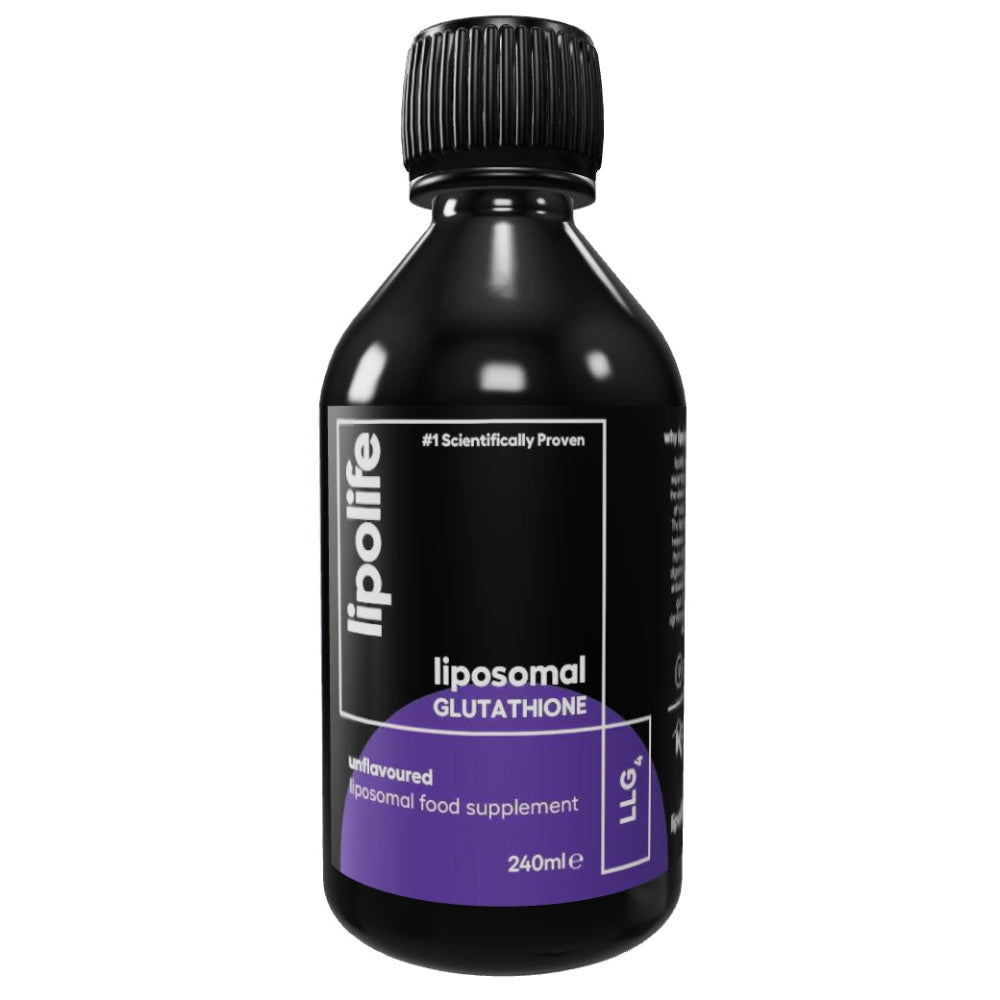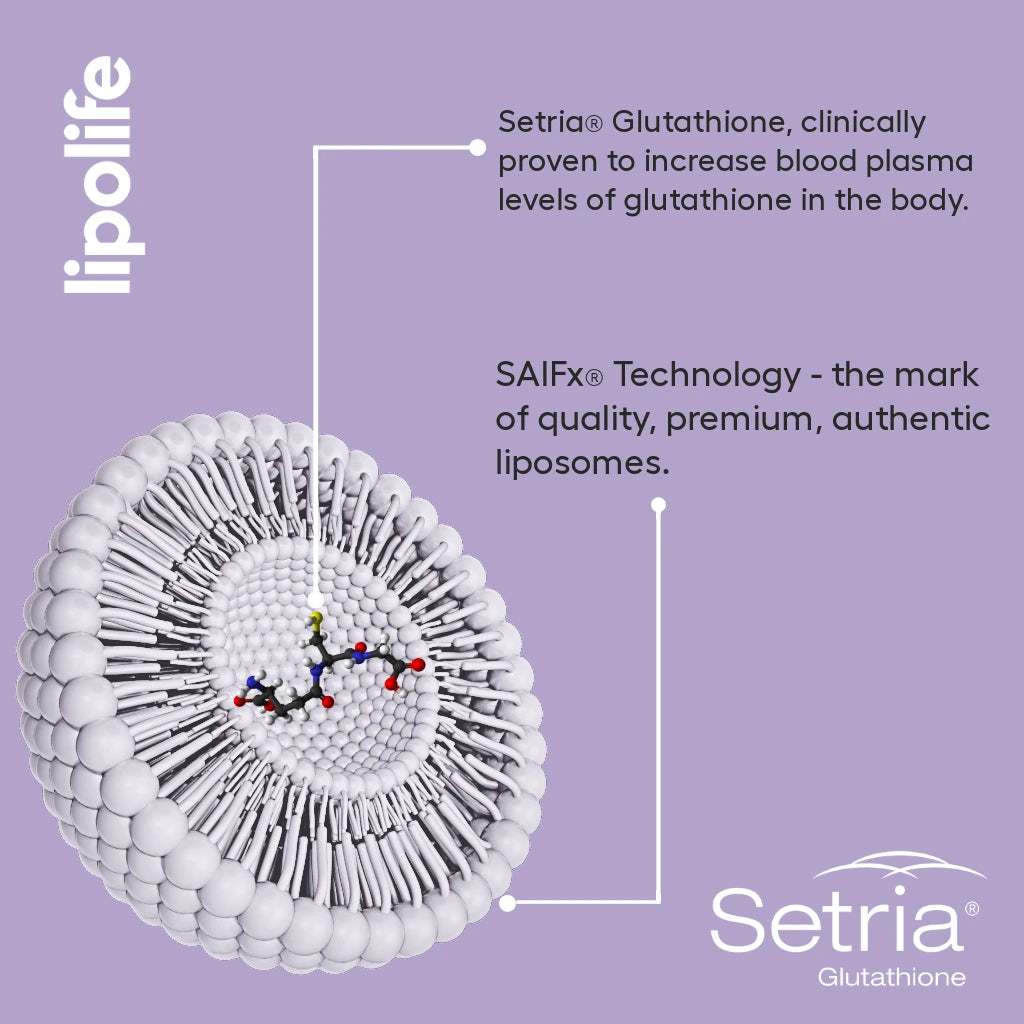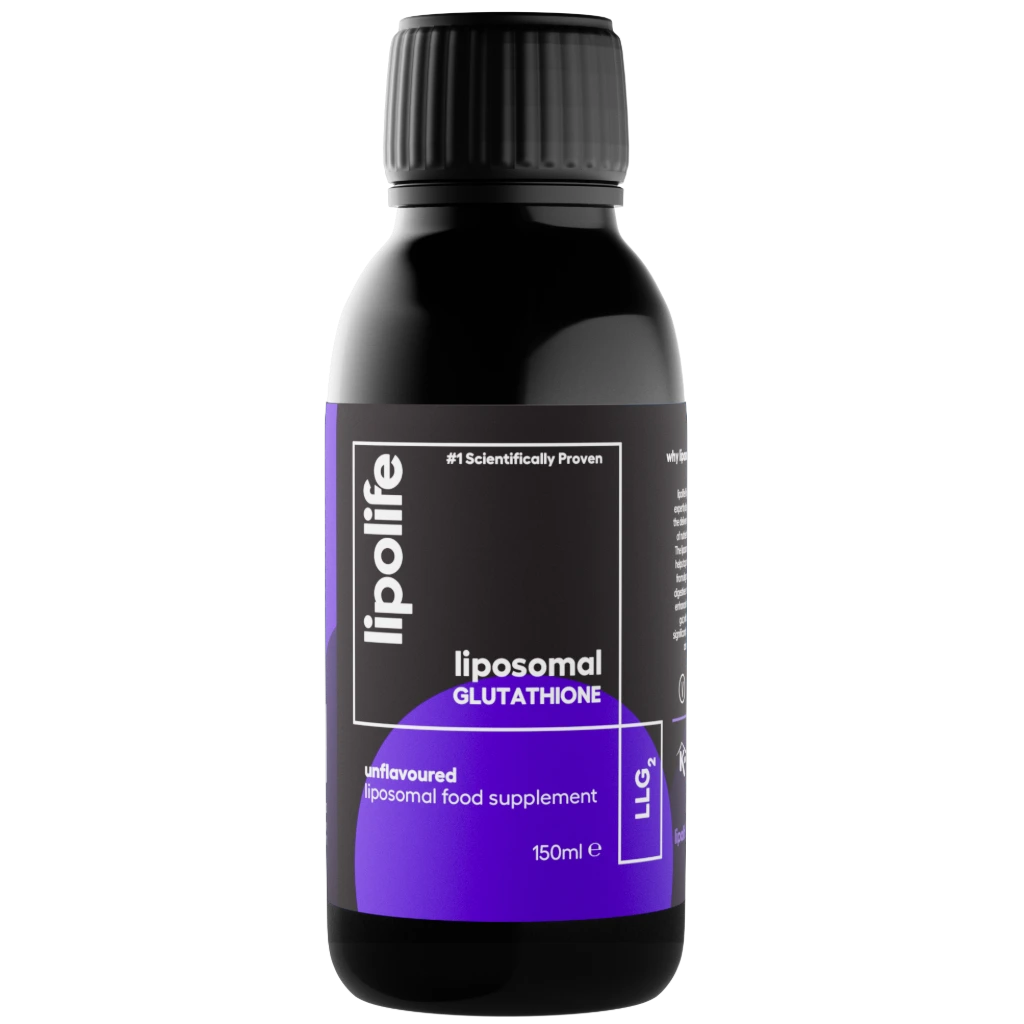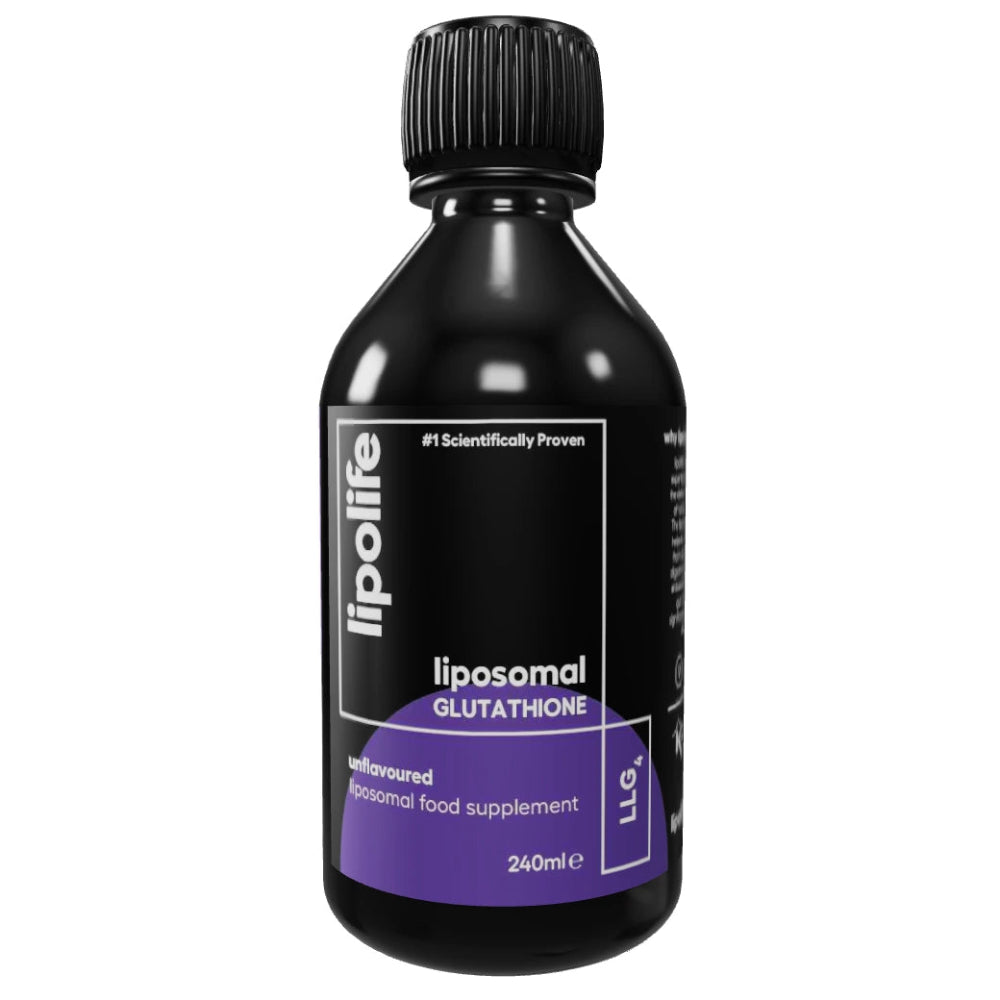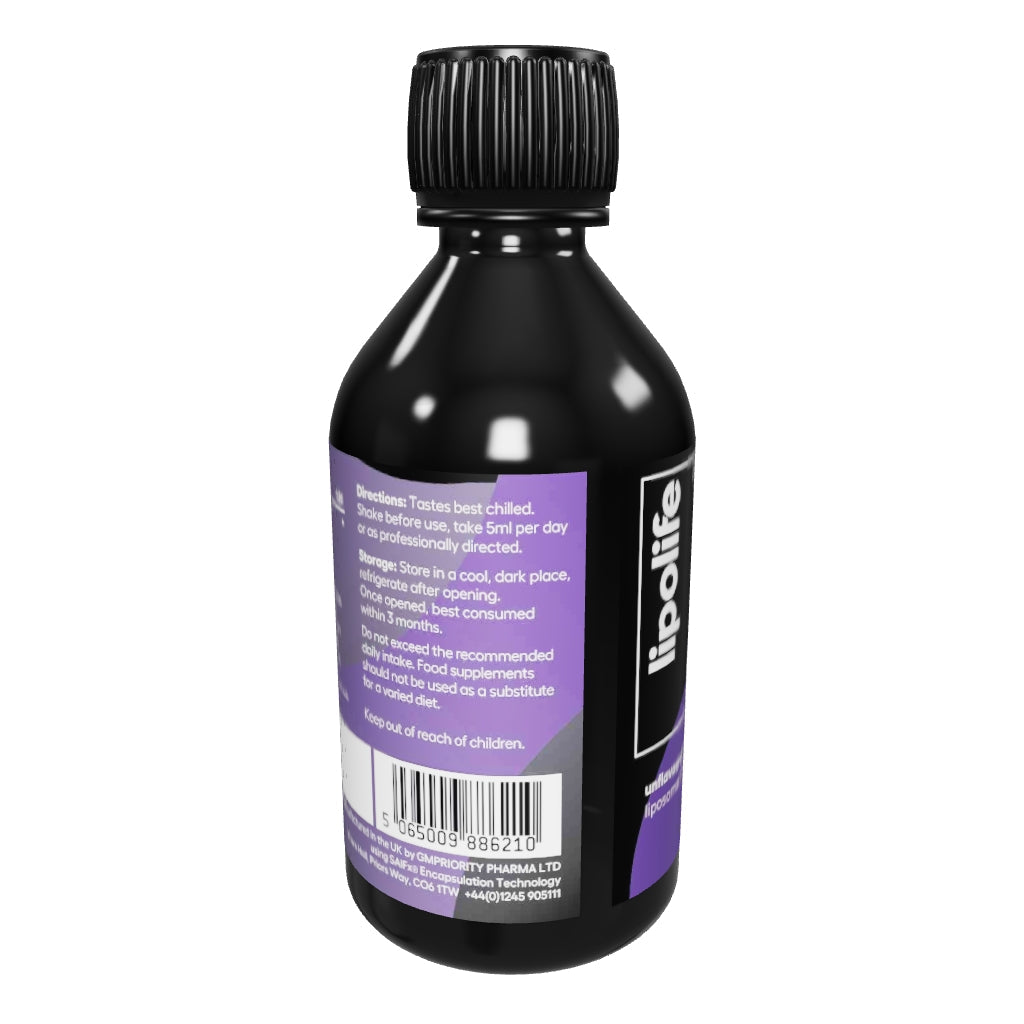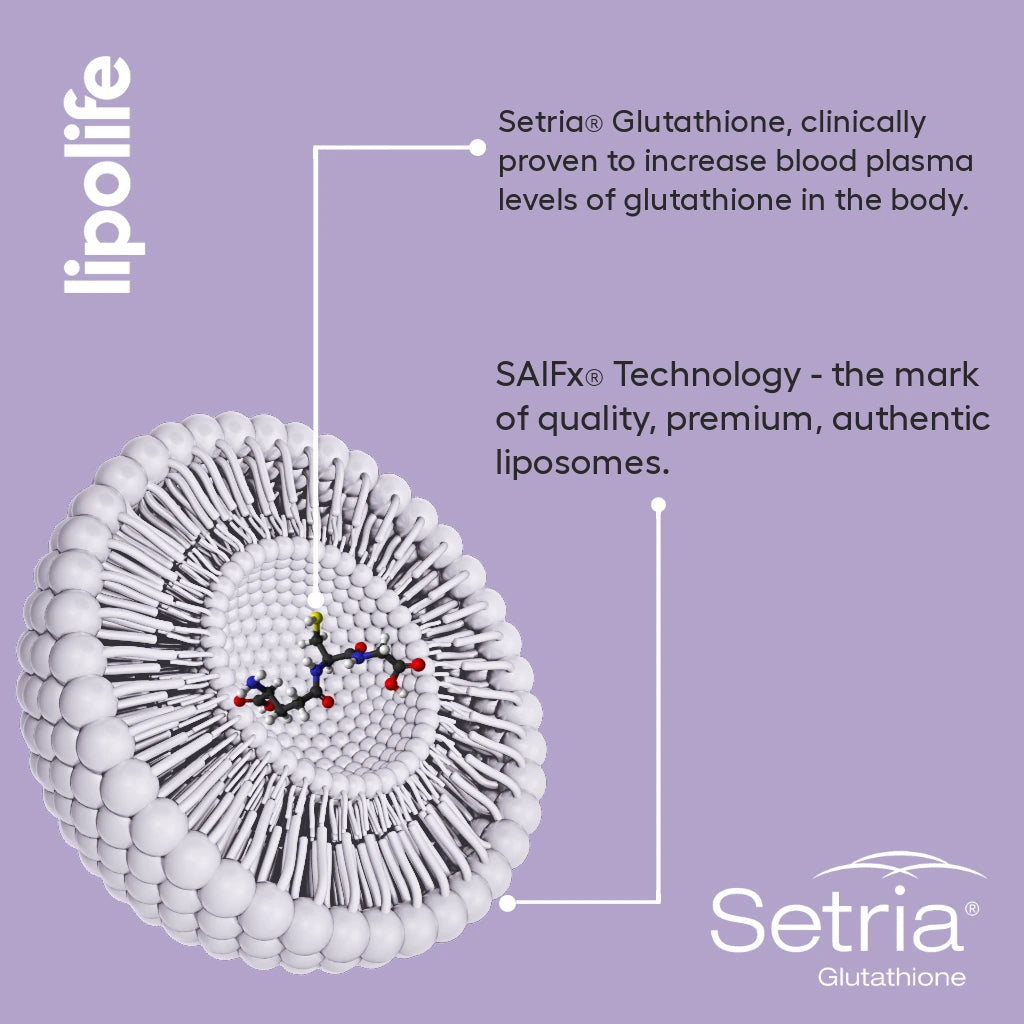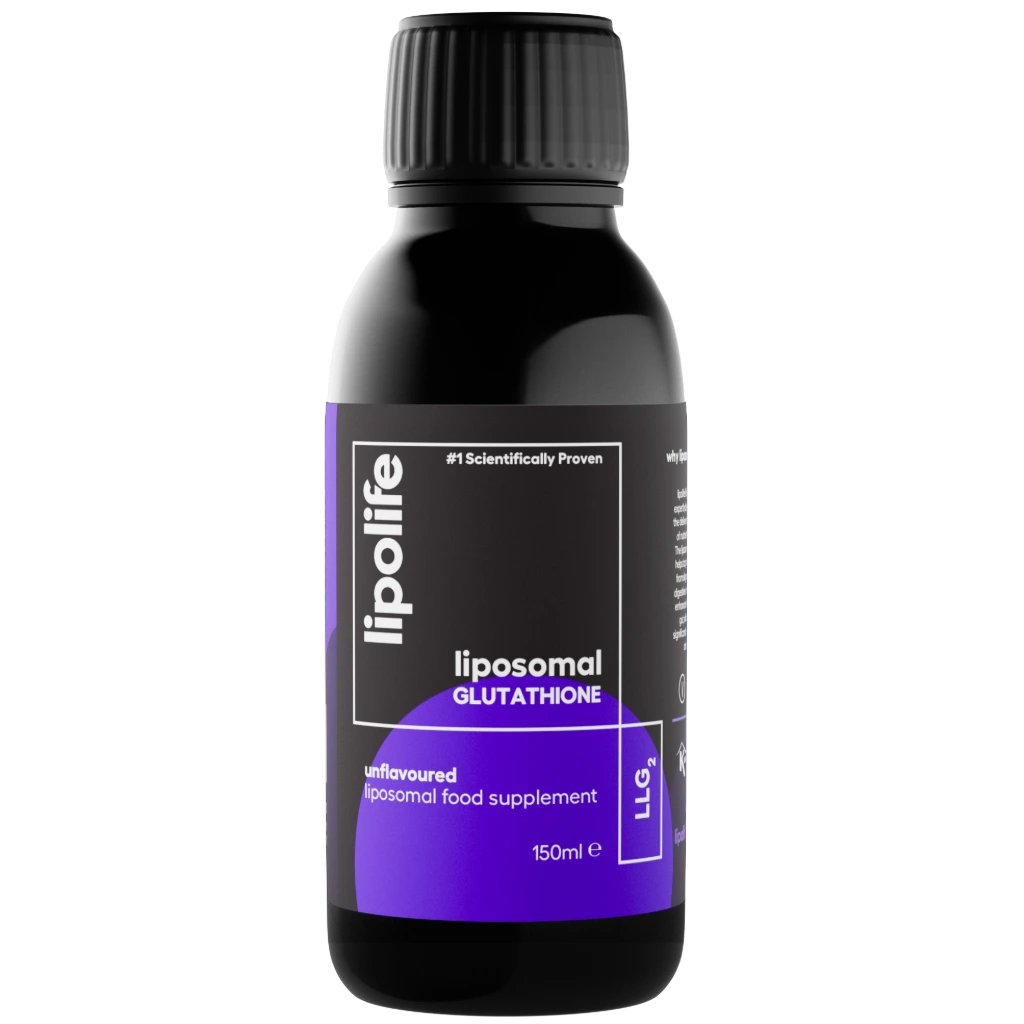Liposomal Glutathione Liquid
Liposomal Glutathione Liquid
| Minimum Cart Quantity | Discount | Wholesale Price |
|---|
| Minimum Cart Amount | Cart Discount |
|---|
| Minimum Cart Quantity | Cart Discount |
|---|
Couldn't load pickup availability
Quick look
Quick look
Authenticity
Authenticity
Transmission Electron Microscopy (TEM) provides visual confirmation that a marketed liposomal product is not just a generic emulsion but a true liposomal delivery system.
View lipolife® glutathione under the microscopeEvidence of authenticity: lipolife® glutathione under Transmission Electron Microscopy.

Uniform morphology indicates good structural integrity of liposomes and stable encapsulation of the active ingredient.
Why buy
Why buy
Share this product
Product Details
Product Details
Glutathione is a crucial antioxidant found in the liver, heart, and virtually every cell in the body, playing a fundamental role in cellular protection, detoxification and overall health. However, factors such as poor diet, environmental pollution, chronic stress and ageing can compromise the body's ability to produce and maintain adequate glutathione levels. Many conventional oral glutathione supplements are poorly absorbed due to enzymatic degradation in the digestive tract, limiting their effectiveness.
lipolife® Glutathione overcomes this challenge by delivering a highly bioavailable form of glutathione using advanced liposomal encapsulation technology. This method encapsulates the glutathione in protective phospholipids, ensuring it passes through the digestive system intact and is efficiently delivered into systemic circulation and directly to the cells where it is needed most.
lipolife® offers a high-potency, 100% vegan formula made with the purest ingredients, free from gluten, soy and GMOs. Manufactured to pharmaceutical-grade standards in the UK, it provides a convenient liquid format that makes daily supplementation simple and effective. Unlike many other products, lipolife® is developed using cutting-edge science and incorporates clinically researched ingredients such as Setria® glutathione.
In a randomised controlled trial published in the European Journal of Nutrition in 2014, Setria® glutathione supplementation demonstrated significant increases in glutathione levels showing a 30% rise in whole blood, a 35% increase in red blood cells and a 260% increase in buccal cells. These results highlight the remarkable potential of Setria® to support systemic glutathione stores.
The study also found that glutathione levels began to return to baseline approximately one month after supplementation ceased, indicating that consistent use is key to maintaining optimal levels. Importantly, Setria® glutathione was shown not to suppress the body's own production of glutathione, making it a safe long-term choice.
lipolife® harnesses all of these benefits while significantly enhancing absorption and efficacy through its state-of-the-art liposomal delivery system, making it the superior option for those seeking a reliable and powerful glutathione supplement.
Nutritional Information
Nutritional Information
| Nutrient | Amount per Serving (5ml) | % RI |
|---|---|---|
| Glutathione | 450mg | * |
* = Percentage Reference Intake not established.
Directions
Directions
Ingredients
Ingredients
Safety Warnings
Safety Warnings
what’s in your bottle?
lipolife® liposomal glutathione liquid
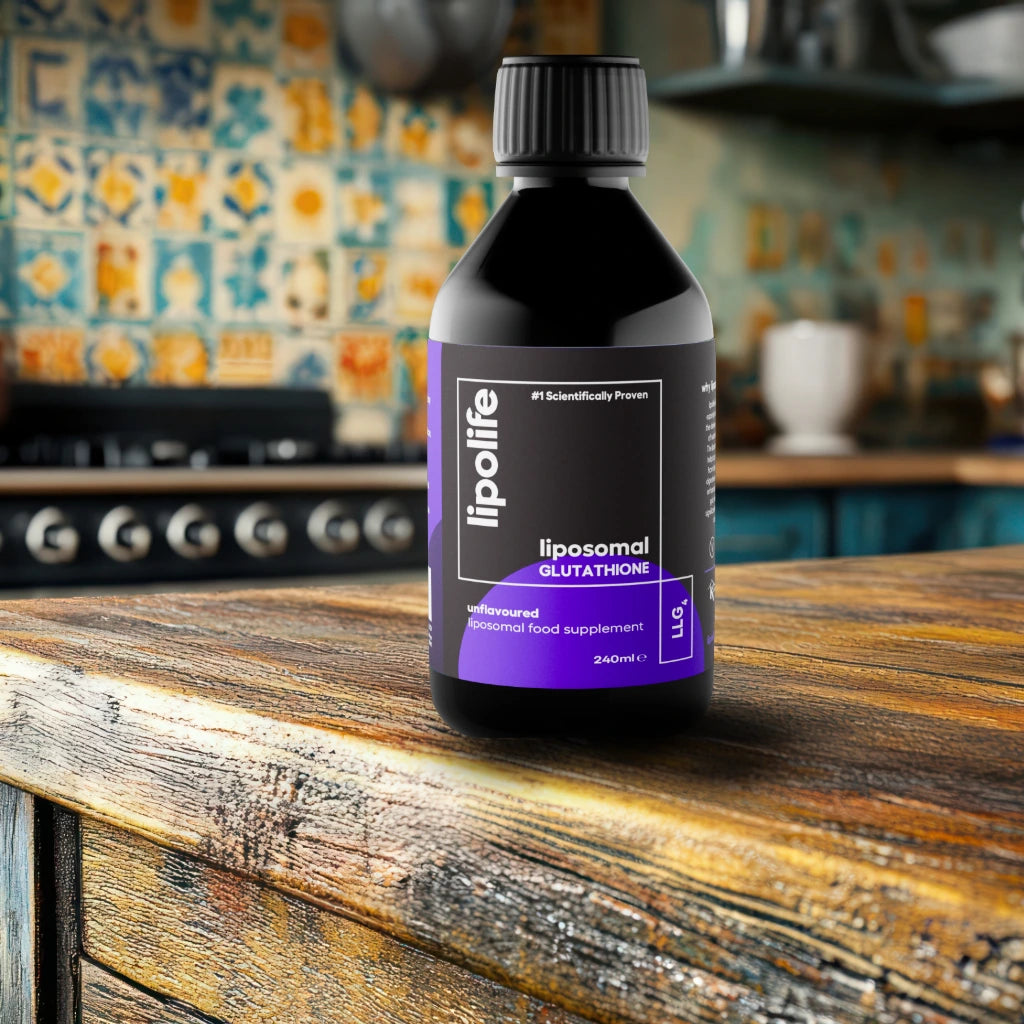
Ultra Pure Water
Ultra Pure Water
Phospholipids
Phospholipids
Setria® Reduced L-Glutathione
Setria® Reduced L-Glutathione
Frequently Asked Questions
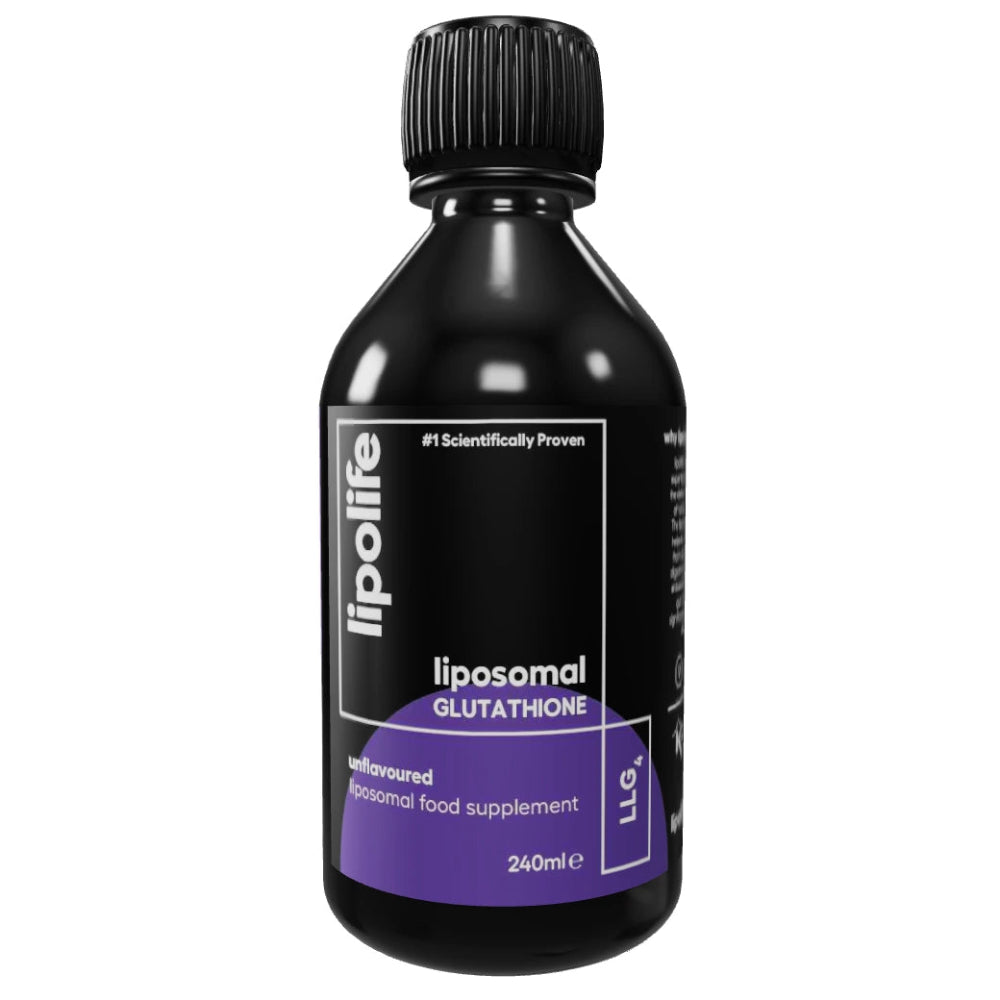
What is glutathione?
What is glutathione?
What is the benefit of glutathione?
What is the benefit of glutathione?
What is liposomal glutathione used for?
What is liposomal glutathione used for?
Why does glutathione taste so bad?
Why does glutathione taste so bad?

VEGAN
All lipolife products are
100% vegan.

GLUTEN FREE
All lipolife product are
100% gluten free

VERIFIABLE SCIENCE
lipolife is the #1 scientifically
proven range of liposomal
supplements

100% UK
lipolife products are
researched, developed and
produced at our UK HQ.

PLANET FRIENDLY
We've only got one planet.
lipolife products are certified
carbon neutral.


